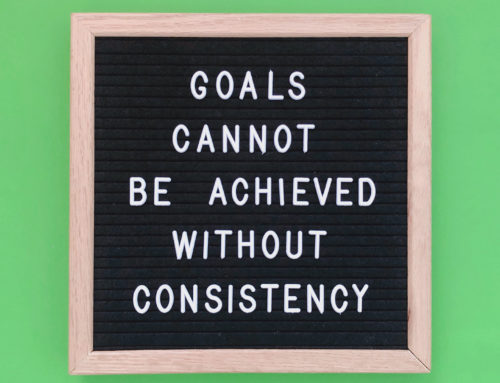Real Estate Marketing Pet Peeves
As operators of a real estate marketing platform we see a ton of marketing. Some of it great, some of it not so good and some that, while an amazing marketing piece in construct, is just missing a fundamental piece, like a call to action, that would make it perfect. This leads us to today’s podcast topic. Real Estate Marketing Pet Peeves, this is meant to be a little tongue in cheek topic that pokes a little fun at what real estate agents (and most of us) do to market listings and themselves while providing tips on what to do to make your marketing better.
Take Aways for Real Estate Marketing Pet Peeves
- Double check your real estate marketing automation – Real Estate Marketing Automation tools are great but they won’t work without human supervision. Make sure to test your drips and pay attention to the details like merge tags and names and links.
- Use multiple marketing channels – Any good marketing program is going to use multiple channels to get the message out. Make sure you are too.
- Don’t be the expert – You are an expert in buying and selling homes. Let the experts in other ares do the things you don;t know. Like Online ads, webpages and such.
Real Estate Marketing Pet Peeves Show Notes
- Spelling and Grammar [1:08]
- Failed Email Merge Tags [2:40]
- Marketing Sprint [6:10]
- Real Estate Marketing Analytics & Multichannel [9:25]
- Don’t be the Expert [12:50]
- Silver Bullet Marketing [14:45]
- SEO [16:10]
- Boring [22:00]
Real Estate Marketing Pet Peeves Podcast Transcription
Adam Small: Good afternoon everybody, this is Adam Small with the Agent Sauce Real Estate Marketing Podcast, and with me, as always is Doug Karr of DK New Media. Hi Doug.
Douglas Karr: How are you, sir?
Adam Small: Doing good today, doing good. Glad it’s a Friday. So, kind of, this week I’ve been doing a lot of work on marketing, and ramping up our own marketing, and looking a lot of marketing out there, and I thought it would be a really fun idea, to talk about marketing pet peeves. These are, you know, things that you look at, when you see it, you know it’s not stuff that you put together hopefully, but when you see it …. We have.
Douglas Karr: Yeah. Yeah, everybody does, right?
Adam Small: Things that you see, and you just go “Why?” Why are you doing this? So I though it would be kind of a fun topic to discuss and hopefully point out some things for other people.
Douglas Karr: Yeah. I like this idea.
Spelling and Grammar
Adam Small: Okay. Number one on the real estate marketing pet peeves list is that I’m a stickler for spelling and grammar.
Douglas Karr: Oh.
Adam Small: I cannot tell you how many times I get a piece in the mail or go to a conference even and there’s a great, big, giant banner and its got a misspelling in it.
Douglas Karr: Yep.
Adam Small: Or they’re using the wrong word. They’re using there as in “over there” instead of their as in “theirs”
Douglas Karr: Yep.
Adam Small: Or “your” instead of “you are.” It’s just insane. It just really sits ill with me. I hate to see it. It just makes me cringe.
Douglas Karr: And that’s a thing; it’s like some people aren’t bothered by it, but some people really are bothered by it. And that’s the problem is: how many people in you audience are you alienating when you make a mistake like that? Here’s my tip on that one.
Adam Small: Okay.
Douglas Karr: Because I do it all the time.
Adam Small: I know. I read your blog.
Douglas Karr: Well, hold on a second.
Adam Small: You’ve gotten a lot better about it. We’ll just stop there.
Douglas Karr: And why have I gotten a lot better?
Adam Small: Because you started …
Douglas Karr: Using Grammarly.
Adam Small: Exactly.
Douglas Karr: So that’s a platform, basically, that every time I’m writing, and the nice thing about it is: it’s not just spelling and grammar, but they actually do ask you, like, “did you mean to say ‘there’, or ‘their’?”
Adam Small: Right
Douglas Karr: So it even kind of predicts the most common mistakes and helps you through them, which I really like.
Adam Small: Right. So that’s one of my real estate marketing pet peeves. What about you, Doug? What’s one of yours?
Failed Email Merge Tags / Marketing Automation
Douglas Karr: I’ve got to tell you, the biggest pet peeve of mine is Dear %[firstname …
Adam Small: So email marketing merge tags failing.
Douglas Karr: Yeah. Merge tags failing on email are probably my, and here’s the reason why: You’re taking the step to try to add some personalization, and it’s obvious that you’re doing it through automation.
Adam Small: Right.
Douglas Karr: So it’s like a double whammy. It’s not just that you-
Adam Small: You’re telling me I wasn’t important enough for you to reach out directly, and you didn’t even pay enough attention to make sure it came out right.
Douglas Karr: Well, it’s almost like, “Hey Doug, I am faking that I am talking to you personally.”
Adam Small: Yeah, exactly.
Douglas Karr: Right? So that’s my biggest pet peeve, is when I get an email and it says “Dear First name” or “dear blank” or “hi blank”. Instantly I’m turned off.
Adam Small: But is that really a failure on the individual’s part, or is it a failure of the marketing automation machine?
Douglas Karr: And that’s a really good point. Like, the marketing automation team, if it had a default setting or it told you, you needed it would be a much better …
Adam Small: And to your point: One of the things that I run into with that, in particular with our marketing automation and with our email marketing with the merge tags is; the concept of “hi” and then leaving a blank.
Douglas Karr: Yeah.
Adam Small: Right? Or a space and then a comma because the name wasn’t actually there and all that.
Douglas Karr: Right.
Adam Small: So the marketing engine, the automation engine should have a merge tag that includes all of it or nine of it.
Douglas Karr: Yeah.
Adam Small: And it should also have a system that goes through and replaces that merge tag with nothing if it’s there and blank.
Douglas Karr: Exactly.
Adam Small: So if I didn’t have your first name it would say “hey, I’m just going to get rid of that.”
Douglas Karr: “Hello, customer.” You know.
Adam Small: Exactly.
Douglas Karr: Absolutely. And I think it’s because someone’s trying to get personal with me, I can’t even think of an analogy. Like walking up to you and saying “Hey Bob.”
Adam Small: Exactly.
Douglas Karr: “I’m Adam.” “Oh yeah. Hi Adam.”
Adam Small: “I remember now.” (laughter)
Douglas Karr: That’s probably the worst on there.
Adam Small: Okay.
Douglas Karr: And I think the lesson there is data cleanliness.
Adam Small: Right.
Douglas Karr: I think all of the stats show, throughout the internet, that personalization is really a way to increase results. And so things like showing, it could be fore real estate agents, showing images from their area.
Adam Small: Right.
Douglas Karr: Showing their houses instead of stock. Showing stuff like that. That personalize the message.
Adam Small: Mm-hmm (affirmative)
Douglas Karr: And all of those are proven to drive click-through rates, open rates, and everything else.
Adam Small: Right.
Douglas Karr: And so you’ve just got to make sure that when you’re collecting data in your CRM that you’re filling out all of the details.
Adam Small: Fill in as much information as you can because that enables you to then be much more personal with that data later on, right?
Douglas Karr: And then keeping it accurate.
Adam Small: Yeah. So, “garbage in, garbage out.”
Douglas Karr: Yeah. Absolutely.
Marketing Sprint
Adam Small: So, you know. So yeah. Okay, great. That was a great one. One that I hadn’t even though of as we were talking about doing this podcast. So that’s a great one. The next one on the list of real estate marketing pet peeves that gets me is dealing with customers on our end that are getting into marketing automation; is what I kind of like to call the “Marketing Sprint,” right? Where they step up and they do a whole bunch of stuff all at once, there’s this huge flurry of activity, and then a month later they’re done.
Douglas Karr: Oh.
Adam Small: They do nothing else. For me, marketing is not a sprint. It’s not. You can do a whole lot at once if you want, but you have to continuously be doing something in order to generate new leads, new opportunities, or it’s just going to die off, you know? So that’s one that I hate to see. A great example is: We’ll get customers that cancel after about six months, and we’ll ask them why and they’ll say “Well, it just didn’t work for us.” And I’ll go “Okay, well, I’m sorry to hear that. I understand. And then I go and I look at their account because I want to see what they were doing and see what we can do to improve the system.
Douglas Karr: Right.
Adam Small: And I see that they put in 25 contacts over a six month period. They actually put them all in at once at the first time.
Douglas Karr: Right.
Adam Small: And they didn’t do anything else after that, you know?
Douglas Karr: Right.
Adam Small: They didn’t add to their contacts so that their emails could go out to a wider base, they didn’t update their contact information, they didn’t send their own emails. They didn’t do anything.
Douglas Karr: It’s like after New Years when you buy the gym membership.
Adam Small: Right. You go two months and then you’re done.
Douglas Karr: And then you complain to the gym, “Hey, your gym isn’t working for me.”
Adam Small: Exactly, right?
Douglas Karr: “Well, when’s the last time that you showed up?”
Adam Small: Yeah. So that marketing sprint, if you’re going to be in a business, especially real estate, you have to marketing yourself. You have to put yourself out there. You have to be constantly doing something to gain new leads. Because you can’t tell me that you expect to make a living off of having 25 contacts in your database.
Douglas Karr: Right.
Adam Small: It’s just not going to work. Do the marathon, don’t do the sprint.
Douglas Karr: Yeah. I totally agree. And it’s a momentum game anyways.
Adam Small: Right.
Douglas Karr: Right? So you put in 25 when you first went into the system. But then each month you’re putting in 10 more, 10 more, 10 more. You’re increasing the likelihood that people are going to respond over time. And that’s ultimately what you want. We talk about this whether you’re writing content on your site, periodically, just pace yourself. You don’t have to sit there and write a blog post every single day.
Adam Small: Right.
Douglas Karr: But maybe once every two weeks to start. Take it easy on yourself. But do it every two weeks.
Adam Small: Pick a frequency. Pick a pattern or a timeframe that is going to work for you, right? Establish yourself, get into that habit, and then try to increase it and do better, do more. But get into the habit first and make sure that it’s a continuous thing.
Douglas Karr: Because if you did a once every two weeks, that’s 26 article our there. That’s 26 articles times X number of keyword combinations that could get you found on search engines or whatever.
Adam Small: Right.
Douglas Karr: Now if you switch to once a week, you just doubled that. You doubled the opportunity for someone to find you.
Adam Small: Yeah, good. You’re up.
Douglas Karr: I’m up?
Adam Small: Yeah, you’re up. What next on your real estate marketing pet peeves list?
Real Estate Marketing Analytics & Multichannel
Douglas Karr: I think we’ve talked a lot about this in the past few podcasts, but measurement. Actually taking and seeing what’s working and when it’s working. I’ll give a couple examples.
I was talking to one entrepreneur in town, and he said, “The only thing I do anymore is Facebook ads, because that’s the only thing that works.” And I said, “Wow, really? That’s incredible.” Because if you’re doing advertising typically that’s a high-cost per lead.
Adam Small: Right. You’re putting money out every single time.
Douglas Karr: Yeah and if you stop it, the leads stop.
Adam Small: Exactly.
Douglas Karr: I said, “So What other things have you done?” And he goes, “That’s really it.”
Adam Small: So that’s all he’s doing because that’s all that worked, but he never tried anything else.
Douglas Karr: Yeah. Exactly. And so the lesson there is that, and we all do it to some extent, if I like sending email, I’m going to send more email.
Adam Small: Right.
Douglas Karr: If I like Facebook ads, I’m going to send more Facebook ads. The problem is, it that it’s not about us.
Adam Small: Right.
Douglas Karr: It’s about our audience and where they are. And some people do like Facebook, some people like video, some like video on Facebook, some like mobile, text messages, and that’s the problem with that thinking is: you can’t convert your favorite to what your audience is expecting.
Adam Small: Right.
Douglas Karr: If you don’t like going and reading a blog post, you’re never going to read a blog post.
Adam Small: Right.
Douglas Karr: But maybe you’ll watch a video, so I have to create videos whether I like it or not.
Adam Small: Right, right.
So one day we’re going to be doing videos of the podcast in here, too, right?
Douglas Karr: We will be, absolutely.
Adam Small: But your point is well-taken in that you kind of have to go where your clients, your leads, your opportunities are instead of hoping to pull them into you.
Douglas Karr: For people listening that sounds easy, it’s not.
Adam Small: No, it’s not.
Douglas Karr: But there’s way like we’re talking about, is we can videotape this podcast. That’s one way of us building some efficiency into it, is that we don’t have to go do a podcast and then go do a video.
Adam Small: Right because we get the audio from the podcast, we get the video from the podcast, and then if we’re really smart about it, we would probably sit down and write a blog post about the podcast as well.
Douglas Karr: And you’re writing notes right now.
Adam Small: Yes I am.
Douglas Karr: And that’s exactly it.
Adam Small: That’s actually time markers so I know what we’re talking about, and I can post that on the blog post when I put it out there.
Douglas Karr: That’s awesome.
Adam Small: One thing I wanted to say about that too, at the same time when you say “well, you’re only doing Facebook, you should be doing something else.” Don’t jump in and do everything else all at once, right? Continue to do what’s working for you. So if Facebook’s working for you, keep doing that. Just devote a little bit of time to something else.
Douglas Karr: 80/20 rule.
Adam Small: Right. So a little bit of something else and get that working for you or decide that it’s not going to work for you. Use measurement and then move on and add something else and then you end up with a nice, well-rounded marketing engine working for you instead of a very narrow silo of lead opportunities.
Don’t be the Expert
Douglas Karr: Love it. And I’d say, maybe this is another on the real estate marketing pet peeves list to follow that up is; don’t try to become an expert. There’s experts out there. And what I’m getting at with that is, let’s say Google AdWords. You got the $100, I think it’s up to $300 now. You got the $300 coupon to go spend money on ads on search engine pages.
Adam Small: Right.
Douglas Karr: If you go do that without any knowledge of how it works that $300 will be gone in seconds.
Adam Small: Right.
Doesn’t take long.
Douglas Karr: And the thing is, is there’s professionals out there that are manned, that literally they will sit and watch your account every single hour, push it to avoid some sites, push it into other keywords that are attracting more attention, and the result, especially for a real estate agent, let’s say you spent $500 a month on AdWords and you got someone to manage that for you. I’m going to guess that maybe you’re going to spend $100 or a couple hundred dollars maybe to have someone manage that kind of. But the results might be three times, four times what you would get yourself.
Adam Small: Right.
Douglas Karr: And so it’s a great return on investment to go hire a professional to do it for you. If you could do it yourself to save money, what you’re really doing is ruining the chances for it to actually work.
Adam Small: Good advice. Very good advice.
Douglas Karr: I can come up with another one if you want.
Adam Small: No, I’ve got a whole list of things here.
Douglas Karr: Oh nice. You’ve got a lot of pet peeves.
Adam Small: I do, yes. I’m a very angry person, apparently.
Silver Bullet Marketing
Douglas Karr: Another one on the list of real estate marketing pet peeves that kind of tags into your measurement thing, as we were talking about it, the guy’s doing the one thing, the Facebook thing and all that. A peeve for me is the silver bullet mindset too.
Adam Small: Yeah, we talked about that.
Douglas Karr: We had a podcast on that earlier, right. And that’s basically the concept of “I’m going to do this one thing and this one thing only and it’s going to make me super rich.
Adam Small: You got a lot of marketers telling you that out there, too.
Douglas Karr: Exactly. And it’s just not going to work. One thing is not going to make you super rich.
Adam Small: We see it all the time. We’ll just put it out there. Some people are terrible on video.
Douglas Karr: Right.
Adam Small: So don’t do it.
Douglas Karr: Got a face made for radio, right?
Adam Small: They might stutter or they might just be twitchy. They might be really uncomfortable. And the thing is, then don’t do it.
Douglas Karr: Right.
Adam Small: Just rely on your other methods that work better. We want people to try everything and see what kind of results they get. We’d love people to hire a professional, but not everybody has that money to hire a professional to help with each one of those things, but the fact is, is if you stink at it, don’t do it.
Douglas Karr: Stop. Move on. Go somewhere else, do something else.
Adam Small: Exactly.
SEO
Douglas Karr: Exactly. All right. Here’s a personal favorite of mine on the real estate marketing pet peeves list, and I avoid getting into discussions with people about it because it’s just such a misunderstood topic and it’s SEO.
Adam Small: I have one for SEO.
Douglas Karr: Oh, do you? Good. I’ve got one for SEO, too, but you go right ahead.
Adam Small: Homepage.
Douglas Karr: Homepage, okay.
Adam Small: You look up someone’s site and the title of their site is “Homepage.”
Douglas Karr: As opposed to?
Adam Small: The title of their site.
Douglas Karr: Uh-huh. Exactly.
Adam Small: So the default setting on a lot of content management systems set the homepage as “Home.”
Douglas Karr: Right.
Adam Small: And so the problem is, is that you’re competing with 4 billion other pages called “Home” and Google has no clue what your page is about, who you are, or anything.
Douglas Karr: So maybe you should say “Oh, Indianapolis Home For Sale.”
Adam Small: Exactly.
Douglas Karr: That’s even a kind of a generic term which is probably well-ranked for a lot of other things. But something specific to you and your area and what you’re doing, right?
Adam Small: And it’s important that we tell people when we’re saying “home page,” when we’re saying “title.” We’re not talking about the text that’s within the body of the page. You can have the page called “Indianapolis Homes For Sale.” What we’re talking about is the, if you look at your tab on the browser, what does your tab actually say? Because that’s what’s in the title tags of the page and that’s what the search engines are going to pick up and index.
Douglas Karr: Right.
Adam Small: And the title tag is absolutely, without a shadow of a doubt the most impactful piece of content on that page for search engines to index the site.
Douglas Karr: It’s that important?
Adam Small: Yes. Absolutely.
Douglas Karr: Good thing to know, right?
Adam Small: Yeah.
Douglas Karr: So, for me with SEO it’s a mistaken concept that there is a hard and fast formula that if I can just tweak that page just right on my site. Tweak my site just right with this formula, then I’m going to rank number one for everything with my five or seven page site.
Adam Small: Right because Google, who has spend billions of dollars in intellectual property-
Douglas Karr: R&D-
Adam Small: R&D and they hire mathematicians and physicists are going to make it as easy as mentioning the keyword six times within your content.
Douglas Karr: Exactly.
Adam Small: No, those days are-
Douglas Karr: Long gone.
Adam Small: Long gone and so we had someone in here the other day and they said, “So how many times on average should I mention the keyword?” And I said, “as many times as is comfortable within the conversation.” And they were like, “Well, won’t Google pick it up better if we mention the keyword more times?” And I said, “Here’s the trouble: If you’re writing for a search engine then your not writing for the search engine user. If you want to rank your site really high, you have to write remarkable content. People have to mention it, people have to point to it in order for it to rank high.” Well, if you just have a paragraph and you mention something six times and you bold the words or you put it in a heading and you repeat it multiple times, the first thing I’m going to do is go “ugh” and I’m not going to share it with anybody. And so what you’re doing is you’re defeating your own purpose there. And so we like to tell people, “Make remarkable content. Put a great image in it. Joke around in your content. Make it entertaining. That will get your stuff shared.”
Douglas Karr: Exactly. I kind of liken it to having a conversation, right? When I’m having a conversation with you, I don’t say “Hi Doug how are you doing? Well, Doug, tell me about this, and Doug, oh, you know what, Doug? You’re so funny, and Doug, Doug, Doug, Doug.” Right? It just doesn’t work.
Adam Small: “As an Indianapolis real estate agent-”
Douglas Karr: Right.
Adam Small: “I go to the Indianapolis real estate agent website and I post my homes in the Indianapolis real estate section.” Yeah.
Douglas Karr: It just doesn’t work like that.
Adam Small: No, not anymore. It used to.
Douglas Karr: Right.
Adam Small: For anybody listening, if you have an old school SEO guy, they’re going to argue with us, and that’s fine. They don’t rank, so it doesn’t matter.
Douglas Karr: There you go. That’s one thing I run into quite a bit and I have that conversation it seems like at least once a quarter with somebody, when I finally just have to go, “Well, you know what? If it’s working for you great.”
Adam Small: Yeah, exactly.
Douglas Karr: Because you can’t argue.
Adam Small: Ultimately here’s the thing: SEO isn’t about ranking. SEO is about taking an organic search visitor and turning them into a customer. And so I don’t care is your website is ranked number one for 800 terms.
Douglas Karr: Right.
Adam Small: If you’re not getting any business off it-
Douglas Karr: If it’s not converting it doesn’t do you any good at all.
Adam Small: It doesn’t matter. So you can play all these games you want to try to cheat your way to the top of the search engines and maybe perhaps you have ten years of legacy and back links and everything that’ll produce that but it’s still not converting, and that’s ultimately … your SEO guy should be interested in: are you getting business off of this?
Douglas Karr: Right.
Adam Small: If you’re not getting business off it, it doesn’t matter where you rank.
Douglas Karr: You can lead that horse to water but you can’t force him to drink.
Adam Small: Absolutely.
Douglas Karr: And is he’s not going to drink then it’s just not going to do you any good no matter what you’re doing, right?
Adam Small: And consumers are really smart nowadays, right? We look at the top three on the page, then we scroll to the bottom of the page and we see the bottom one on the page typically. Then we see the top two on the next page. And so we’re going to compare everybody anyways.
Douglas Karr: Right.
Adam Small: So.
Boring
Douglas Karr: Right, so, great. The last item on the real estate pet peeves to avoid list, Doug?
Adam Small: I’ve got one.
Douglas Karr: Okay.
Adam Small: Yeah. Some things really work well that just aren’t exciting. And what I mean by that is, a perfect one is; mobile text messaging, right?
Douglas Karr: Right.
Adam Small: It’s not sexy-
Douglas Karr: Not anymore.
Adam Small: Yeah. It’s just not sexy, right?
Douglas Karr: Right.
Adam Small: And it’s not, if you go read any marketing website, there’s not a ton of information about it or anything else.
But to date. Still today it has absolutely the highest reading rate and the highest retention rate of any medium whatsoever. And so I think that we have a real problem in our industry with marketers who run to SnapChat or something. If you spent as much time building a cute little video on SnapChat and posting it one to one to all of your prospects, if you spent that time instead really doing a good offer on a text message you would get 100 times the response rate.
Douglas Karr: Right.
Adam Small: I don’t care what anybody says. It goes back to the silver bullet thing, but a lot of things are in the news and they’re plastered all over these websites and agencies latch onto them because it’s something new. But the fact is, is that those tried and true techniques still aren’t bad. We have clients that still do direct mail every once in a while. We have clients, you do-
Douglas Karr: Yeah actually print is seeing a resurgence in real estate right now it seems like. In the end, it is effective if it’s done right it’s a great farming tool, it’s a great touch tool just to remind somebody “hey, I’m a realtor, touch me, call me when it’s time.”
Adam Small: You think about how busy your inbox is compared to how busy your mailbox is. In a mailbox, I don’t think we got any mail in here today.
Douglas Karr: Right.
Adam Small: So if I had one piece of direct mail it would have got 100% of my attention.
Douglas Karr: Right.
Adam Small: Whereas if I look at my email, I have 90 new emails.
Douglas Karr: Exactly.
Adam Small: So I’m just delete, delete, delete.
So yeah, I would really encourage people to not listen to the, what’s the word? There’s a word for it.
Douglas Karr: The naysayers, the new, uh-
Adam Small: I’m on a podcast. I should know words. (laughter)
Douglas Karr: Well, we’ll forgive you this time.
Adam Small: But the big, shiny thing. The thing that’s just-
Douglas Karr: Don’t go chasing the shiny objects of silver bullets or whatever you want to call it.
Adam Small: Yeah.
Douglas Karr: Yeah. Because in the end, marketing is like anything else: in you put effort into it, you’re going to get result from it. There’s no short cut to that. You have to put effort into it in order to get results out of it.
Adam Small: We know attorneys in town that still get billboard calls.
Douglas Karr: Yeah.
Adam Small: They still get them.
Douglas Karr: Why? Because they’re putting billboards out there. Because they work.
Adam Small: It’s just not a, you know, you want to test and measure and see what your results are and then base your decisions not off your own opinions or the next marketing guru that you saw a speech in. I don’t want to say all that saying “Don’t believe anything the marketers say.” We do have significant changes in customer behavior with the way that we watch TV, the way that we listen to things, all of that.
Douglas Karr: Right, right.
Adam Small: So things are changing. But all we’re saying is; there are some tried and true techniques that still work very well.
Douglas Karr: Well, and it comes back to the concept of the narrow bullet and the sprint. They all kind of tie in together with that, right? And even your Facebook thing where the guy’s doing just one thing. You know what? Try other things. Do what works and add to it, and keep adding to it and when something stops working either tweak it and make it work again or say “Look, it’s not going to work for me I’m going to go on and do other things.
Adam Small: Yeah.
Douglas Karr: And if you’re measuring, then you know it’s working or that it’s not working and you know why.
Adam Small: Yep.
Douglas Karr: All right. Hey, great podcast today, Doug. Really enjoyed it. Thanks for joining us to talk about Real Estate Marketing Pet Peeves. If you guys want to learn more you can contact us at info@agentsauce.com or visit us online at agentsauce.com. Thanks.







